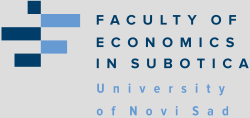TAX STRATEGIES AND FDI SENSITIVITY IN CRISIS CONDITIONS: THE CASE OF EU
DOI:
https://doi.org/10.46541/978-86-7233-416-6_21Keywords:
strane direktne investicije, efektivna prose?na poreska stopa, pandemijska kriza, makropaneli, Evropska unijaAbstract
In recent decades, tax strategies have been used as an instrument for attracting foreign direct investment (FDI), which has been recognized as a key factor for stimulating economic growth. However, the success of lowering tax rates and bases, for the sake of attracting FDI, can be questionable, especially in the outbreak crisis years. The aim of this paper is to examine the long-term relationship between the effective average tax rate (EATR) and FDI in the period 1998-2019, using heterogeneous panels and then to investigate the global pandemic crisis impact on the long-term relationship, by extending the model for the years in which the crisis is included (1998-2021) in the EU-27. Using the Pooled Mean Group (PMG) model, a significant negative long-term relationship was revealed, in both models, although, the long-term relationship is lower in the extended model, as a negative consequence of crisis impacts, indicating that tax policy is not a determining factor for FDI inflows in crisis conditions. The error correction is significant and negative in both models, showing that in the developed EU countries the FDI sensitivity to the EATR reduction in the pandemic crisis condition was lower than in the emerging EU economies. Namely, developed EU economies’ tax strategies aimed at attracting FDI are more resistant to crisis circumstances compared to emerging EU economies.



